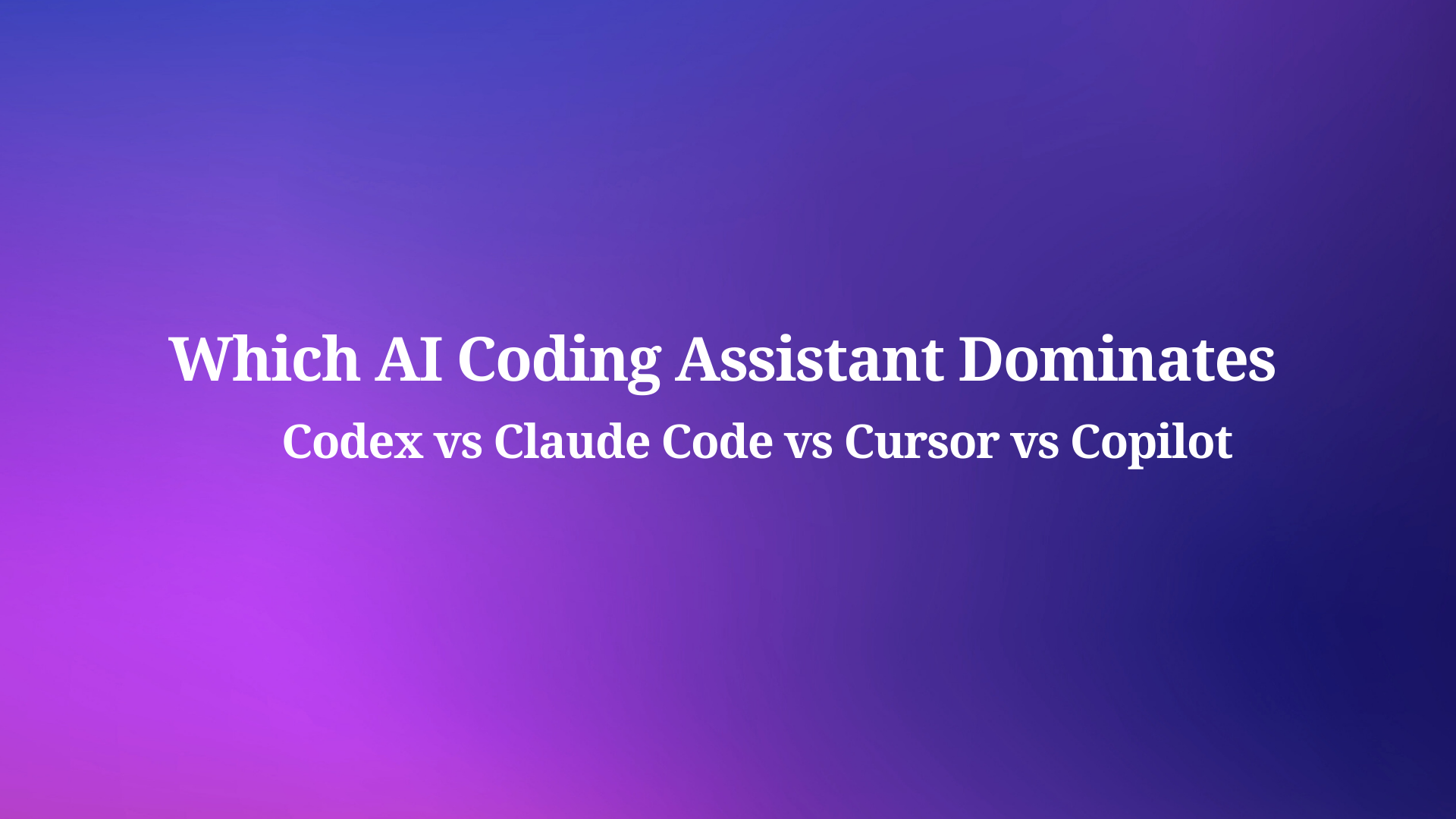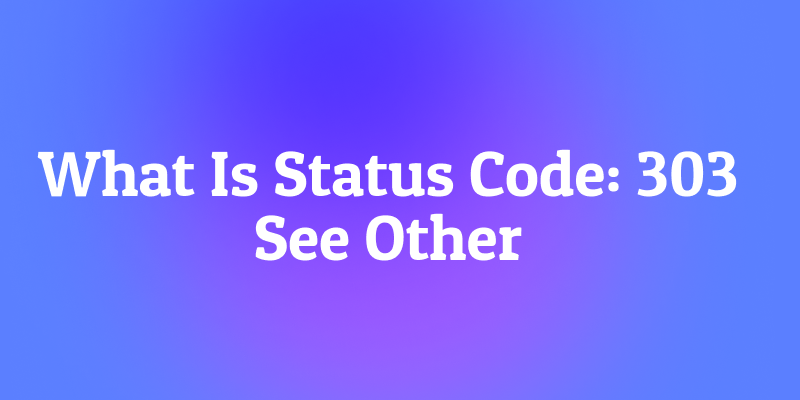Docsify has earned its stripes as a "magical" documentation site generator, transforming Markdown files into polished websites on the fly. Its simplicity, real-time preview, and lightweight nature have made it a favorite for many developers and technical writers. However, as projects scale and requirements evolve, the very magic of Docsify – its client-side rendering and minimal build process – can present limitations. Users may seek alternatives offering better SEO, more robust built-in features, stronger theming capabilities, or a different feature set more aligned with specific needs like comprehensive API documentation.
If you're exploring options beyond Docsify, you're in the right place. This article dives into the top 10 Docsify alternatives, each with its unique strengths, catering to a diverse range of documentation needs.
Why Look Beyond Docsify?
Before we unveil the alternatives, let's briefly touch upon why one might explore other options:
- SEO Limitations: Docsify's client-side rendering can be challenging for search engine crawlers, potentially impacting the discoverability of your documentation.
- Build Process for Static Assets: While Docsify avoids a traditional build step for content, some users prefer fully static sites for performance, hosting simplicity, or specific deployment workflows.
- Plugin Dependency: While Docsify has a rich plugin ecosystem, relying heavily on third-party plugins for core functionalities like versioning or advanced search can sometimes lead to maintenance overhead or compatibility issues.
- Theming and Customization: While customizable, achieving highly bespoke designs might require deeper CSS knowledge compared to some alternatives with more structured theming systems.
- Specific Feature Sets: For specialized needs like extensive API documentation with interactive consoles or complex versioning requirements, dedicated tools might offer more out-of-the-box solutions.
- Performance on Large Sites: For extremely large documentation sites, the client-side rendering might lead to slower initial load times compared to pre-built static sites.
With these considerations in mind, let's explore the leading alternatives.
1. APIdog: The Alpha for API Documentation and Beyond
Claiming the top spot is APIdog, a comprehensive API lifecycle management tool that excels in generating beautiful, interactive, and highly functional API documentation. While Docsify can handle general documentation, APIdog is purpose-built for the complexities of APIs, making it an ideal choice if your primary focus is on documenting REST, GraphQL, WebSocket, or other API types.
APIdog isn't just a documentation generator; it's an integrated platform for API design, debugging, testing, and mocking. This holistic approach ensures that your documentation is always in sync with your API development, a critical factor often challenging to maintain with separate tools.
Key Features of APIdog:
- Seamless API and Markdown Integration: APIdog allows you to combine meticulously structured API references with rich Markdown content for explanations, tutorials, and guides, all within a unified platform.
- Automatic Code Generation: It generates API request samples and schema code in over 20 languages, significantly reducing manual effort and ensuring accuracy.
- Interactive API Console: Users can directly debug API endpoints from within the documentation, providing an immediate, hands-on experience that accelerates understanding and integration.
- Robust Versioning Control: Manage and publish multiple API versions concurrently, allowing users to easily switch between them. This is crucial for APIs with evolving specifications.
- Customizable Design and Layout: APIdog offers extensive personalization options for page layout, navigation, and styling, enabling you to create a branded and consistent look and feel for your documentation.
- Team Collaboration: Built with teamwork in mind, it offers features for shared editing, commenting, and access control, streamlining the documentation workflow for development teams.
- Advanced Mocking Capabilities: Its smart mocking feature automatically generates data based on field names, facilitating frontend development and testing even before the backend is fully implemented.
- Security Features: Options for password protection and custom domains with auto-generated SSL certificates ensure your documentation is secure and professional.
- Support for OpenAPI Specification (OAS): Fully compatible with OAS, allowing easy import and export of API definitions.
Why APIdog as #1 for Docsify Users (Especially with APIs):
For users whose documentation heavily revolves around APIs, Docsify’s general-purpose nature might feel limiting. APIdog directly addresses this by providing a specialized, powerful, and integrated environment. It moves beyond static Markdown rendering to offer a dynamic and interactive experience crucial for API consumers. While Docsify excels at lightweight, markdown-driven sites, APIdog offers a more robust, feature-rich solution for the demanding world of API documentation, justifying its position as a top-tier alternative.

2. Docusaurus: The Feature-Rich Static Site Generator by Meta
Docusaurus, an open-source project by Meta (formerly Facebook), is a highly popular choice for building optimized documentation websites. It leverages React for its UI and offers a wealth of features out-of-the-box, making it a strong contender for projects of all sizes.
Key Features of Docusaurus:
- Versioning: Built-in documentation versioning is a core feature, essential for software projects.
- Internationalization (i18n): Easily translate your documentation into multiple languages.
- Content Search: Integrates with Algolia DocSearch for powerful and fast search capabilities.
- Theming: Offers a customizable theming system, including a popular "classic" theme.
- MDX Support: Allows you to use React components directly within your Markdown files for enhanced interactivity.
- Plugin Architecture: Extensible with a growing ecosystem of plugins.
- SEO Friendly: Generates static HTML files, which are more easily crawled by search engines compared to Docsify's client-side approach.
Ideal Use Cases:
Larger projects requiring robust versioning, internationalization, and strong SEO. Teams comfortable with the React ecosystem will find it particularly powerful.
3. MkDocs: Python-Powered Simplicity
MkDocs is a fast, simple, and downright gorgeous static site generator that's geared towards building project documentation.1 Written in Python, it's a favorite among Python developers but is perfectly suitable for any project.
Key Features of MkDocs:
- Markdown-Focused: Like Docsify, content is written in Markdown.
- Great Themes: Comes with several built-in themes, with "Material for MkDocs" being an exceptionally popular and feature-rich third-party theme.
- Extensible: A good selection of plugins is available for added functionality.
- Easy to Use: Known for its straightforward configuration and quick build times.
- Host Anywhere: Generates completely static HTML files that can be hosted on any web server or services like GitHub Pages.
Ideal Use Cases:
Projects of any size that prioritize simplicity, speed, and a clean, modern look. "Material for MkDocs" theme users benefit from a vast array of built-in features like admonitions, code highlighting, and navigation enhancements.
4. VuePress: Vue-Powered Static Site Generator
Created by Evan You, the creator of Vue.js, VuePress is a static site generator optimized for writing technical documentation. It leverages Vue for its theming layer and provides a fantastic developer experience, especially for those already familiar with the Vue ecosystem.
Key Features of VuePress:
- Vue-Powered Theming: Allows for deep customization using Vue components.
- Default Theme with Great Defaults: The default theme is highly optimized for technical documentation, offering a clean layout, sidebar navigation, and search.
- Plugin System: A flexible plugin API to extend its capabilities.
- Markdown Extensions: Includes extra Markdown features tailored for documentation, like custom containers and line highlighting.
- Performance: Generates pre-rendered static HTML for fast loading and good SEO.
Ideal Use Cases:
Documentation for Vue.js projects or for developers who prefer the Vue.js ecosystem. It’s great for sites that need a balance of Markdown simplicity and the power of Vue components.
5. Nextra: Next.js and MDX for Powerful Docs
Nextra is a documentation builder built on top of Next.js and MDX (Markdown with JSX). This combination provides immense power and flexibility, allowing you to create highly interactive and dynamic documentation sites.
Key Features of Nextra:
- Leverages Next.js: Benefits from all the features of Next.js, including server-side rendering (SSR), static site generation (SSG), image optimization, and routing.
- MDX Support: Seamlessly embed React components within your Markdown content.
- File-System Based Routing: Simple and intuitive routing based on your directory structure.
- Theming and Styling: Flexible styling options using CSS Modules, Tailwind CSS, or any CSS-in-JS library.
- Built-in Components: Often comes with useful components for callouts, tabs, and more.
Ideal Use Cases:
Teams already using Next.js or those wanting to build highly customized and interactive documentation sites with the full power of React.
6. GitBook: Collaborative Knowledge Base Platform
GitBook has evolved from a simple open-source documentation generator into a comprehensive, collaborative knowledge base platform. While it still supports Markdown, its focus is now more on providing a hosted solution with team-oriented features.
Key Features of GitBook:
- WYSIWYG and Markdown Editing: Offers a user-friendly editor alongside Markdown support.
- Team Collaboration: Real-time collaboration, comments, and version history are central to the platform.
- Custom Domains and Branding: Professional presentation for your documentation.
- Integrations: Connects with various tools like GitHub, Slack, and Zapier.
- Hosted Solution: Manages the hosting and infrastructure for you.
Ideal Use Cases:
Teams looking for a managed, collaborative platform for both internal and external documentation, where ease of use for non-technical contributors is important. It's less of a "generator" in the traditional sense and more of a full-fledged SaaS.
7. ReadMe: Interactive API Documentation and Developer Hubs
ReadMe is another strong contender, especially if your documentation is centered around APIs. It focuses on creating interactive developer hubs that make it easy for users to understand and integrate with your APIs.
Key Features of ReadMe:
- Interactive API Reference: Allows users to make API calls directly from the documentation.
- Markdown Editor with Rich Components: Enhance your content with recipes, changelogs, and more.
- Personalization: Tailor documentation for different users or API versions.
- Analytics: Gain insights into how your documentation is being used.
- Customization: Extensive theming and CSS customization options.
Ideal Use Cases:
Businesses focused on providing excellent developer experiences for their APIs. It excels at creating engaging and interactive API documentation.
8. Hugo: The Blazing Fast Static Site Generator
Hugo is renowned for its incredible speed. Written in Go, it can build large websites in a fraction of a second. While a general-purpose static site generator, it's highly capable for documentation sites.
Key Features of Hugo:
- Extreme Speed: One of the fastest static site generators available.
- Flexible Templating: Uses Go's
html/templateandtext/templatelibraries. - Markdown Support: Native support for Markdown with various flavors and shortcodes for extending functionality.
- Taxonomies: Powerful support for organizing content with categories and tags.
- Large Theme Gallery: A wide variety of themes available, including many suitable for documentation.
Ideal Use Cases:
Performance-critical documentation sites, large-scale projects, or when build times are a major concern. It has a steeper learning curve for theming compared to some others.
9. Jekyll: The Blog-Aware Static Site Generator
Jekyll is one of the pioneers in the static site generation space and powers GitHub Pages. While often associated with blogging, it's a solid choice for documentation sites due to its simplicity and strong Markdown support.
Key Features of Jekyll:
- GitHub Pages Integration: Seamless deployment with GitHub Pages.
- Markdown and Liquid Templating: A well-established combination for content and theming.
- Plugin Ecosystem: A mature plugin ecosystem for extending functionality.
- Large Community: Extensive documentation and community support.
- Blog-Aware: If your documentation site also includes a blog, Jekyll handles this naturally.
Ideal Use Cases:
Users who want tight integration with GitHub Pages, prefer a Ruby-based environment, or need a stable, well-understood tool for straightforward documentation and blogging.
10. Sphinx: Powerful and Mature, Especially for Python Projects
Sphinx is a powerful documentation generator that has been around for a long time and is the de facto standard for Python project documentation. It uses reStructuredText as its primary markup language but also supports Markdown via extensions.
Key Features of Sphinx:
- reStructuredText: A powerful markup language designed for technical documentation, offering features like cross-referencing, automatic API documentation generation (from Python code), and rich semantic markup.
- Multiple Output Formats: Can generate HTML, PDF, ePub, and more from the same source.
- Extensive Theming and Customization: Highly configurable with many available themes.
- Cross-Referencing: Excellent support for linking between different parts of the documentation.
- Autodoc: Can automatically generate documentation from Python docstrings.
Ideal Use Cases:
Primarily Python projects, large and complex technical documentation, or when multiple output formats are required. The learning curve for reStructuredText can be steeper than Markdown.
Choosing the Right Alternative
The "best" Docsify alternative ultimately depends on your specific project requirements, team expertise, and desired features.
- For API-centric documentation with a need for interactivity and a full lifecycle toolkit, APIdog stands out as a premier choice.
- If you need robust versioning, i18n, and SEO in a React-based environment, Docusaurus is excellent.
- For simplicity, speed, and beautiful themes (especially with Material for MkDocs), MkDocs is hard to beat.
- Vue.js enthusiasts will feel at home with VuePress.
- Those wanting the full power of Next.js and MDX should look at Nextra.
- For managed, collaborative knowledge bases, GitBook offers a compelling solution.
- Interactive API developer hubs are the forte of ReadMe.
- When sheer build speed is paramount, Hugo shines.
- GitHub Pages users and those needing a stable, blog-aware generator can rely on Jekyll.
- Python projects or those needing highly structured technical documentation and multiple output formats will find Sphinx invaluable.
Docsify remains a fantastic tool for many use cases. However, the landscape of documentation tools is rich and varied. By understanding the strengths of these alternatives, you can make an informed decision and choose the platform that will best serve your documentation goals, ensuring your users have the clear, accessible, and engaging information they need.



